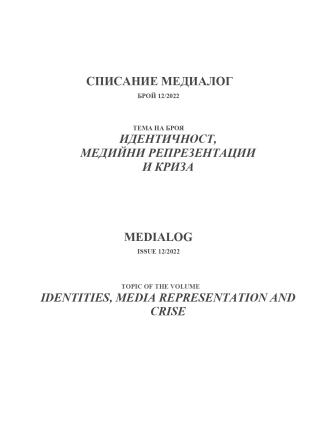Представата за идентичност в българското кино по време на кризи
The idea of identity in Bulgarian cinema during crises
Author(s): Petia AlexandrovaSubject(s): Anthropology, Philosophy, Social Sciences, Theatre, Dance, Performing Arts, Language and Literature Studies, Education, Fine Arts / Performing Arts, Psychology, Music, Photography, Visual Arts, Applied Linguistics, Aesthetics, Communication studies, Sociology, Film / Cinema / Cinematography, Sociology of Art, History of Art
Published by: Факултет по журналистика и масова комуникация, Софийски университет „Св. Кл. Охридски”
Keywords: Bulgarian cinema; transition cinema; cinema identity; identity crisis
Summary/Abstract: National identity in Bulgarian socialist cinema and especially in the films of the program 1300 years of Bulgaria is understood mainly as a plot – to reflect events from our native history and way of life. Very cleverly, they glided over only those events that, even in their drama, are positive for our self-esteem. But the constructive direction was in the films about migration and guilds as a native modification of the results of industrialization and modernization. In the time of transition, national identity appeared as a problematization – ethnic minorities, ideological, religious, and other repressions came into focus. I define the third stage of identity as confusion. There is no magnetic energy, innovative ideas, deep truth, and sincerity – the screen is 18 percent gray.
Journal: Медиалог
- Issue Year: 2022
- Issue No: 12
- Page Range: 39-50
- Page Count: 12
- Language: Bulgarian

